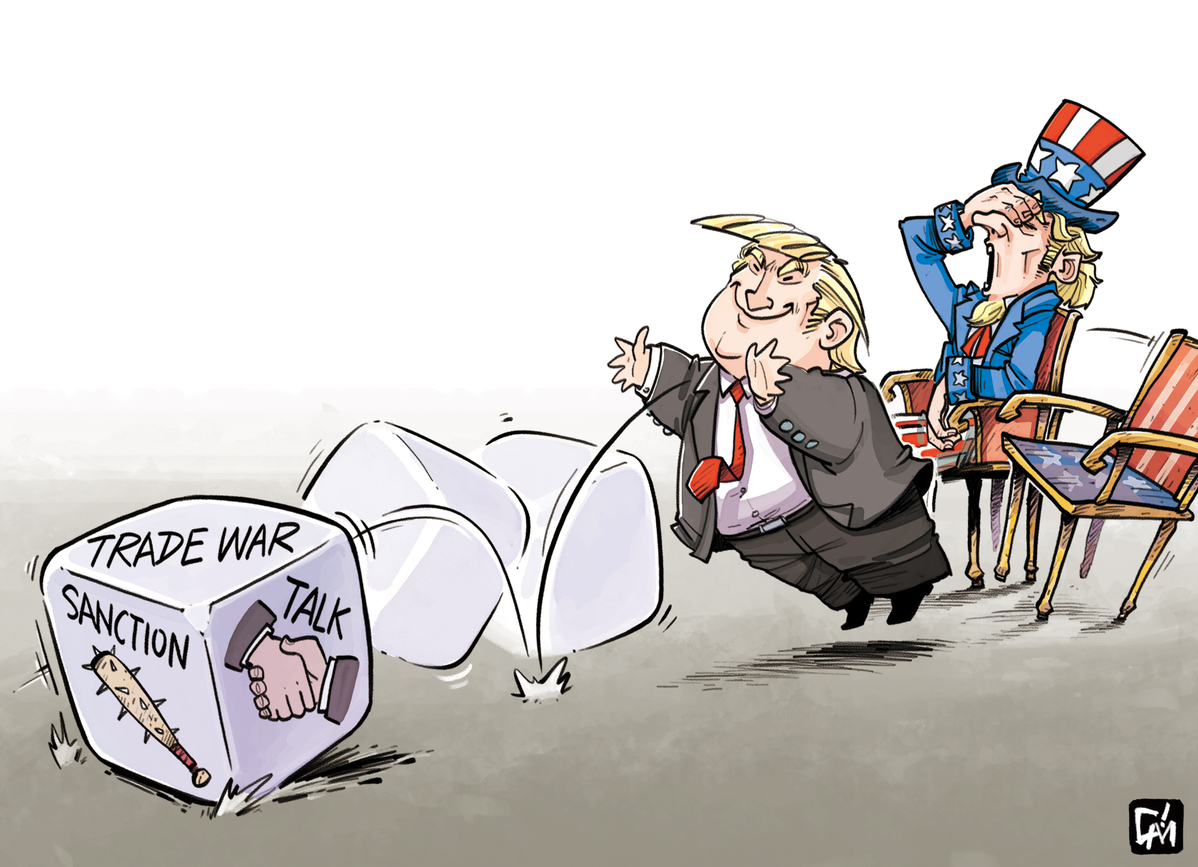
Illustration: Cai Meng/For China Daily
The US government has used tariff and Section 301 investigations in the past as tools to extort benefits from some of its trade partners. But there are signs that this time it is targeting almost all of its major trade partners, which promises greater harm to the global economy and international trade.
China and other major trade partners of the United States have shown great sincerity in their trade talks with Washington, in an effort to bridge the differences that exist. But the unwillingness of the Donald Trump administration to do likewise has made it almost impossible for any agreement to be reached, especially as it seems that it is willing to renege on any consensus reached.
Although internal political power plays might be a factor behind the Trump administration's welshing on its deals, it is also employing a now-we-agree, now-we-don't strategy to force more and more concessions from the US' trade partners.
The Trump administration is ideologically opposed to what it considers to be the surrendering of its power to regulate foreign trade to the World Trade Organization. It seems intent on sabotaging the world's rules-based international system in favor of the US' might making right. It has already blocked the appointment of judges to the WTO's appellate court in a bid to bring the dispute settlement process to a halt. However, it offers no vision of how global economy should function except that the US should be the main beneficiary.
The US government should heed the lessons of history, as they show that protectionism will not help it achieve its goals.
For instance, the US slapped high tariffs on imports of Chinese tires in 2009, a policy that was intended to protect less competitive domestic tire manufacturers. Estimates by Peterson Institute for International Economics showed that 1,200 jobs in the US tire industry were saved, but ultimately 2,500 jobs were lost in retail because of the increased consumer spending that was spent on tires that could have been spent on other goods.
The US will not be exempt from paying the costs of the trade conflict it has instigated in terms of both jobs and growth. But the bigger price it will have to pay will be for the long-term damage it is doing to the world trade system.
Faced with the insatiable demands of the Trump administration, the rest of the world should come together in defense of their national interests, globalization and the global multilateral trading system.
Countries must jointly act to oppose the smash-and-grab tactics of the US.


